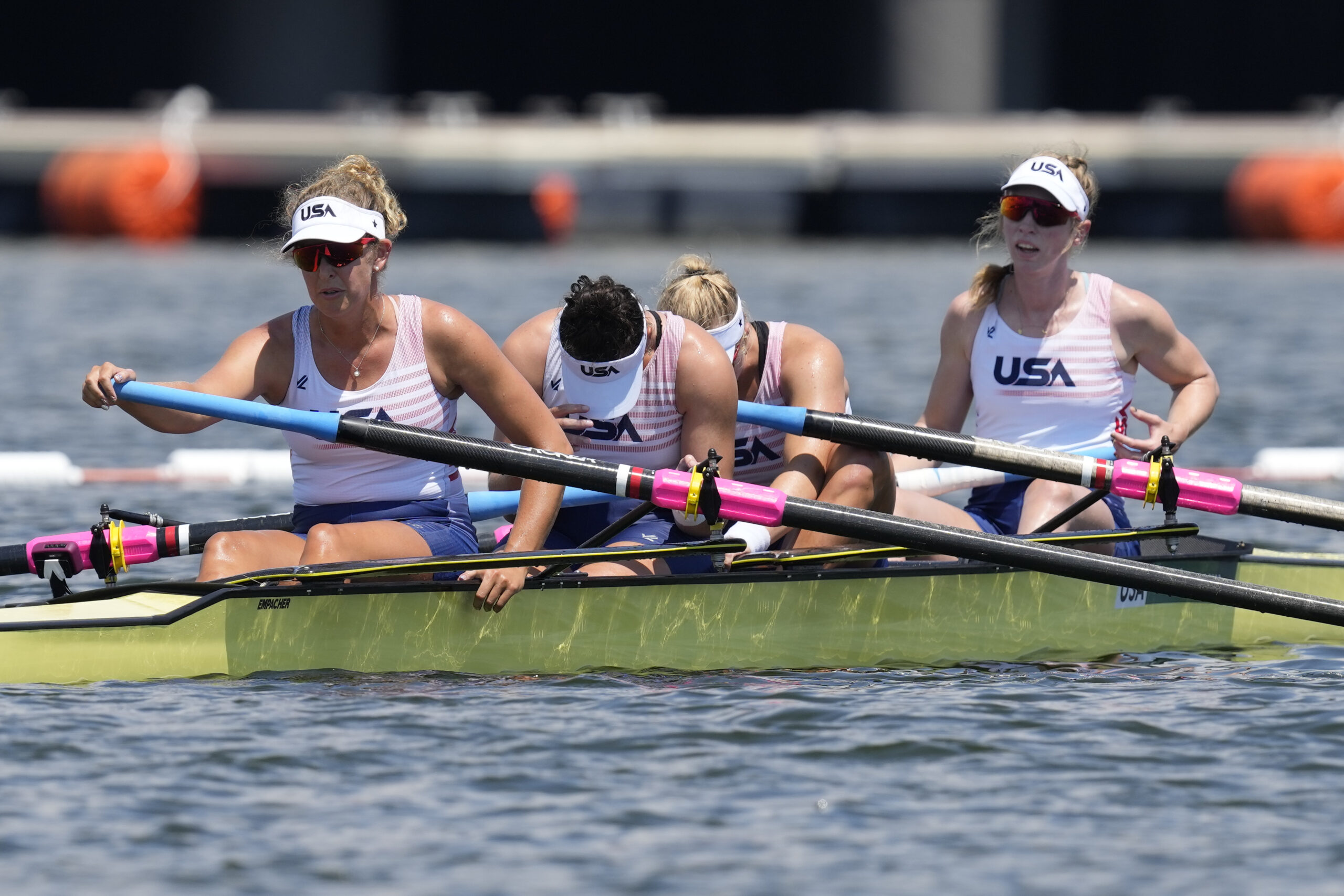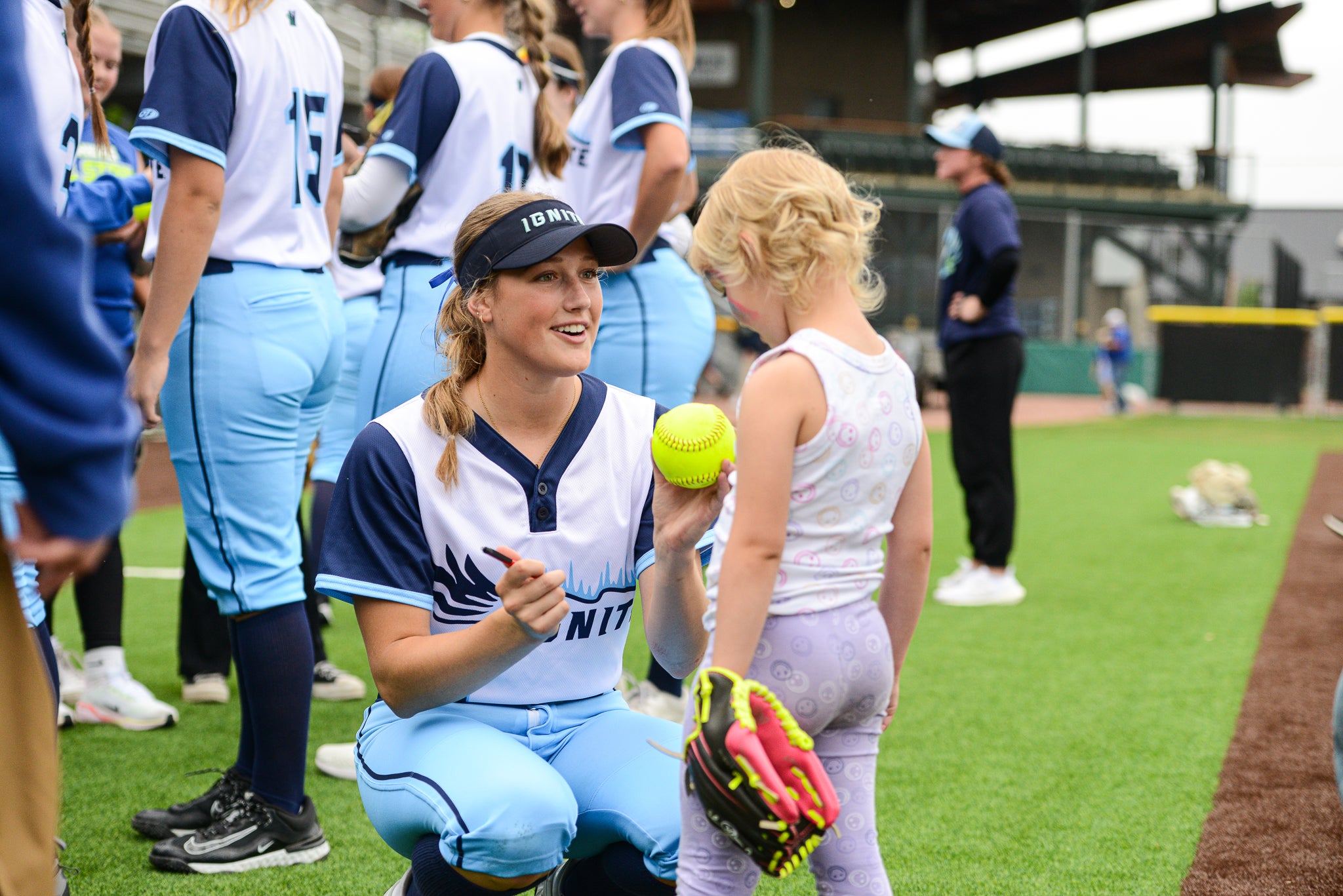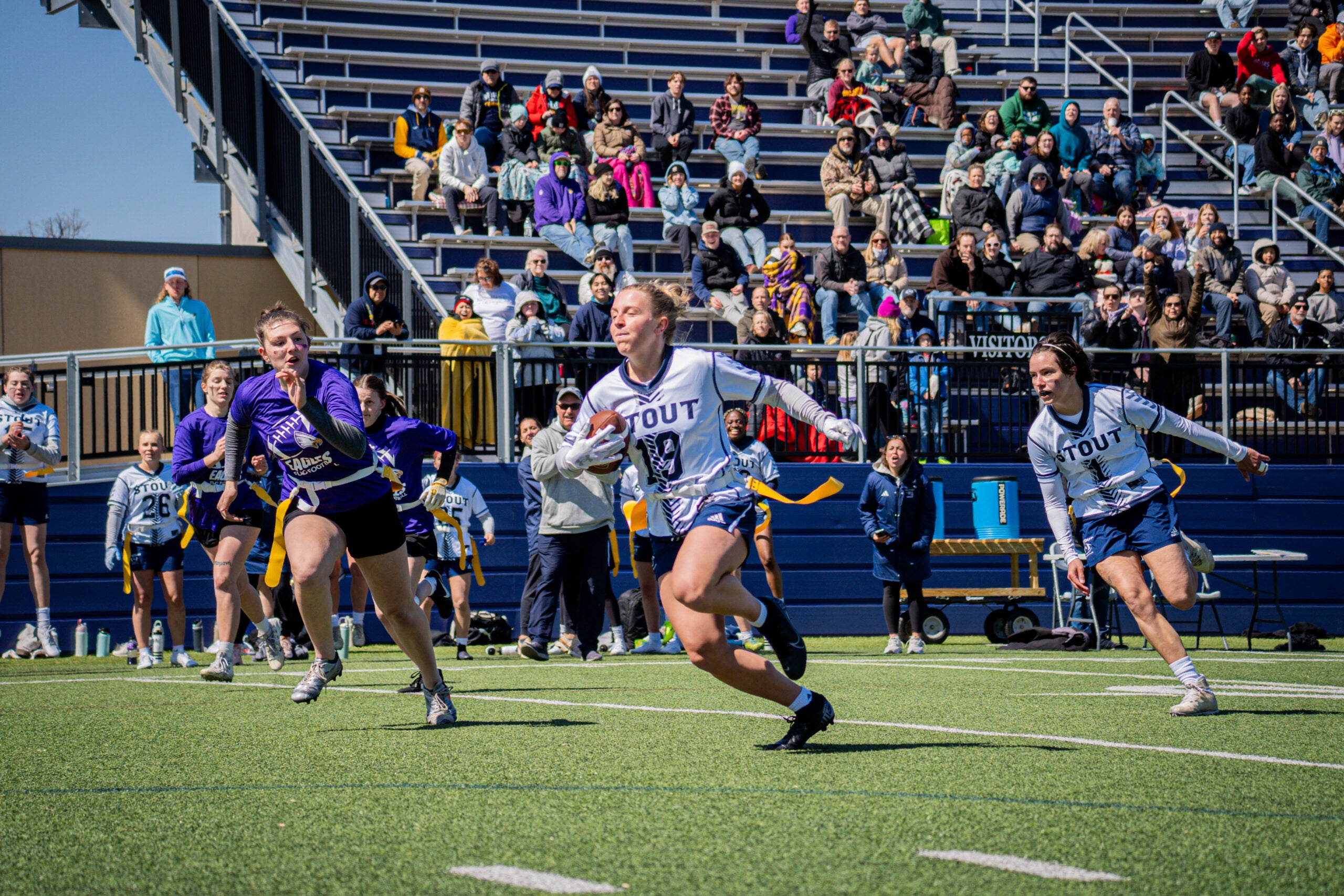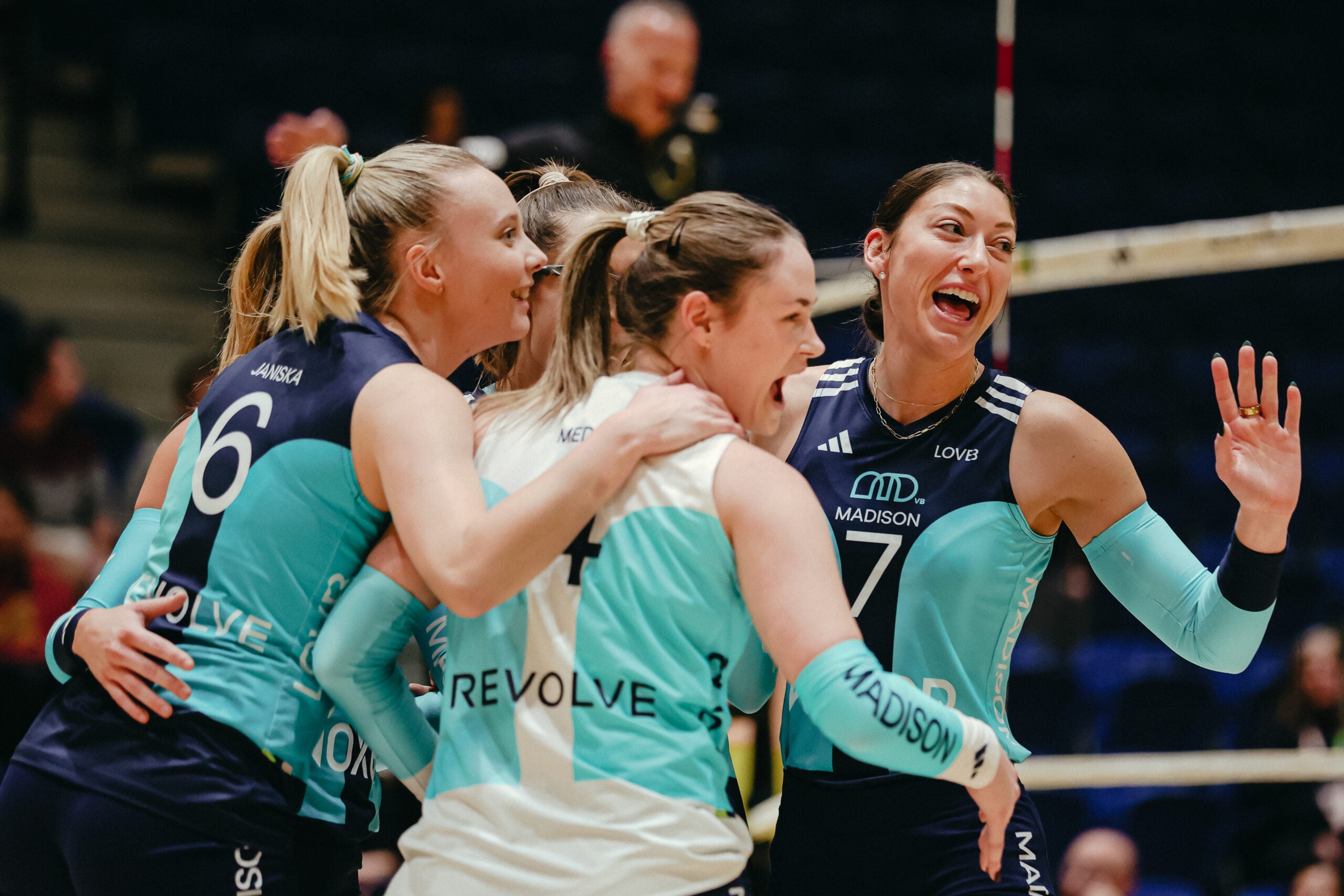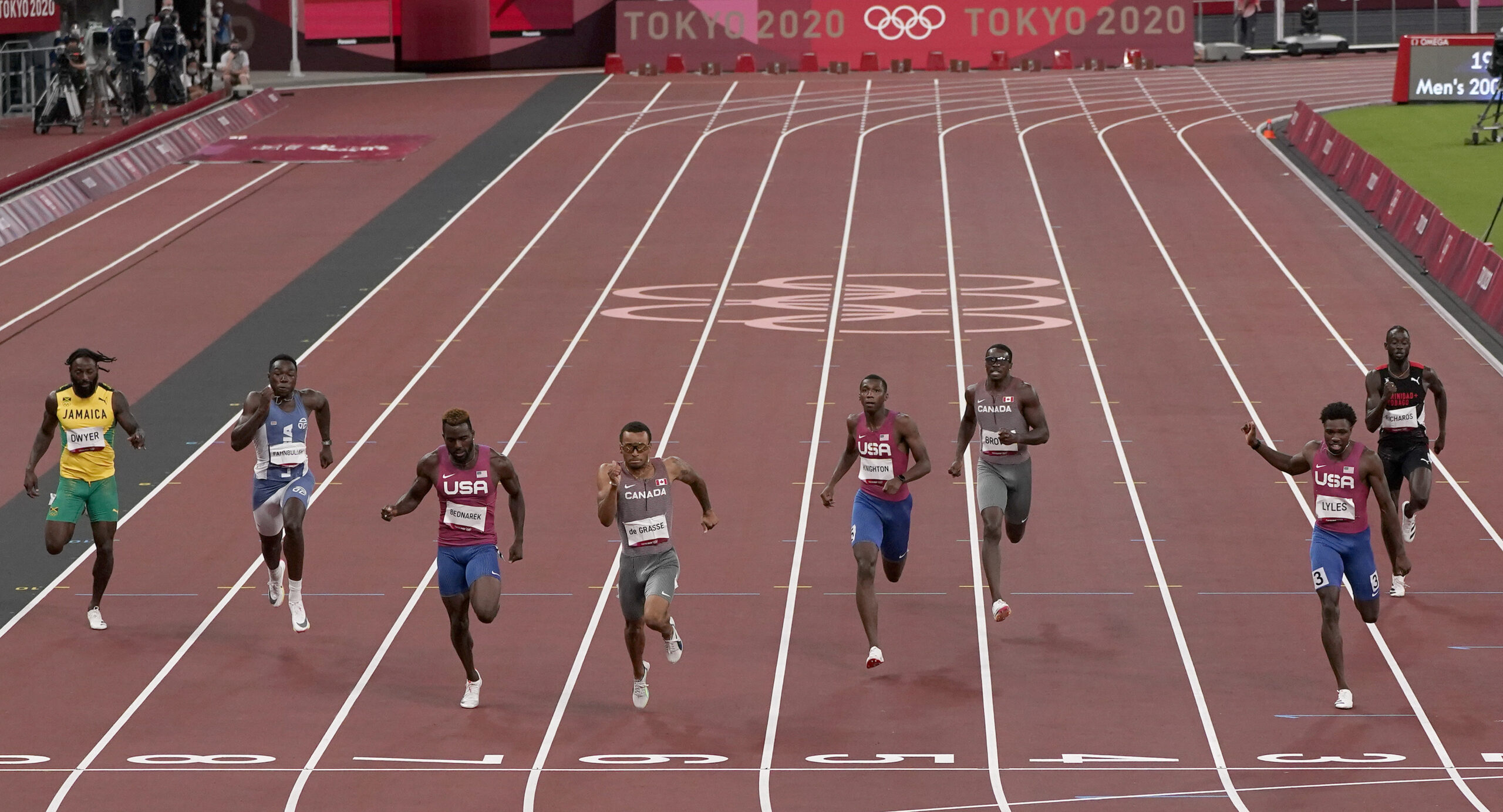The old joke about rowing, Lauren O’Connor said, is that it’s the only sport to have roots as a form of corporal punishment.
“You could go to prison, or you could row on the boats that were taking people across the ocean and doing this really, really hard labor,” she said.
O’Connor, who is from the village of Belleville — population 2,591 — is one of four women from the University of Wisconsin-Madison who will be competing in rowing at the 2024 Summer Olympics in Paris.
News with a little more humanity
WPR’s “Wisconsin Today” newsletter keeps you connected to the state you love without feeling overwhelmed. No paywall. No agenda. No corporate filter.
It’s the third time that has happened: Four Wisconsin women competed in both 1992 and 1998, in Barcelona, Spain and Seoul, South Korea, respectively.
This year’s rowers — O’Connor, Sophia Vitas from Franklin, Maddie Wanamaker from Neenah, and Grace Joyce from Northfield, Illinois — carry on a long tradition for the Badgers. There has been at least one UW-Madison women’s or men’s rower in every Olympics since 1968.
There are two types of rowing — sculling and sweeping. In sweep rowing, each person in the boat holds one oar with both hands. In sculling, each rower holds two oars, one in each hand.
O’Connor and Joyce will be competing in the quadruple sculls, where four women have two oars each. They both rowed for the Badgers from 2016 until 2020. They qualified for the Olympics by winning the women’s quadruple sculls at the 2024 World Rowing Final Olympic & Paralympic Qualification Regatta in Switzerland in May.
Vitas, a five-time member of the U.S. Senior National Team, will be in the double sculls. This past September, she captured a bronze medal in that boat class at the 2023 World Rowing Championships, helping the U.S. secure an Olympic spot.
Wanamaker will compete in her second-straight Olympic games after she finished seventh in the women’s four at the 2020 Tokyo Olympics. She is a decorated international rower, most recently finishing fourth in the women’s four at the 2023 World Rowing Championships and winning gold in the four at the 2023 World Rowing Cup II. She will compete in the women’s eight, where each woman has one oar.
Obviously, they all have the goal of bringing home a medal. But they also said they look forward to the camaraderie that comes with such intense training and competition.
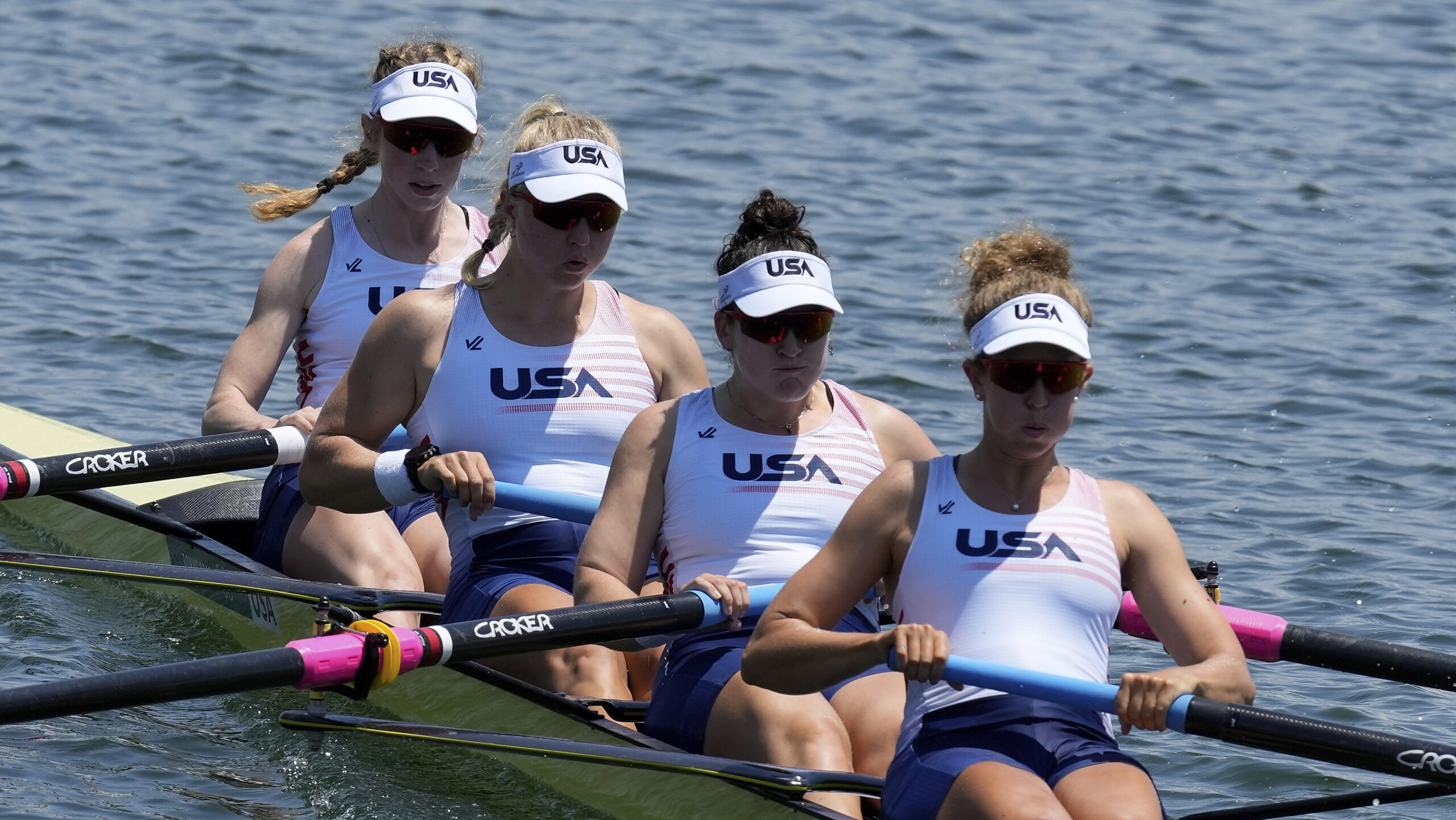
Though Wisconsin has a long history in Olympic rowing, the team also has a strong walk-on tradition. Wanamaker, Vitas and O’Connor were all walk-ons.
Wanamaker walked on in her freshman year after taking a summer rowing camp before her senior year of high school.
“I didn’t start rowing and think, ‘Oh, I’m going to the Olympics,’” she said.
She hoped to make some friends and be physically active in her first year of college.
“It sounds cliche, but I fell in love with it and I loved being on the water and working together with other people,” Wanamaker said.
Overuse injuries take time away from competing
Vitas was anticipating making the team in Tokyo, but a fractured rib a couple of weeks before the team was selected deferred those plans.
“I’ve fractured my rib about, I think, four times now, maybe five. It’s very common. It’s an overuse injury,” she said. “I think the last cycle, I was prone to a lot more injuries. So that did hold me back quite a bit.”
“People frequently will break their ribs,” O’Connor said. “This is the sport that it’s most common in.”
Rib stress fractures occur in 6 percent to 12 percent of rowers and account for the most time lost from on-water training and competition, according to a paper published in the journal “Sports Medicine.” Repeated physical activity can cause micro-damage to bones. And while bones can heal themselves though the process of bone remodeling, when rowers continue the same repetitive movements it can result in stress fractures.
Vitas said a different approach to training has allowed her to stay healthier.
“I’ve been able to train more consistently and just kind of stick to the plan rather than have to take a month or two off (for injuries) and then try and catch up again,” she said.
While Wanamaker had hoped to place higher than seventh in Tokyo, she suffered bigger setbacks in January 2023.
“I had to have surgery to have my first rib removed because I had thoracic outlet syndrome,” Wanamaker said. “I collapsed, basically, the tunnel that all of my nerves and blood vessels go through because of too much rowing, and I had a big blood clot and woke up one morning with a purple and blue arm.”
The surgery happened while Wanamaker was training in Colorado Springs for the benefits of performing at a high altitude. She was stabilized in Colorado and then had surgery in Allentown, Pennsylvania, while the rest of her team was training in Florida.
It was Wanamaker’s second surgery from a rowing injury. The first came when an MRI showed a soft mass of tissue was causing her unbearable shoulder pain. Though her family feared the mass was cancerous, it turned out to be another vascular issue.
And while most assume that rowers have strong arms, O’Connor said that isn’t the case.
“The strongest muscles that we use are our legs and our core,” she said. “My upper body is not that strong. It’s all in my lower body.”
‘It’s really hard to afford this lifestyle’
Even without injuries, devoting one’s life to rowing comes at a steep cost of stability in finances and housing. Vitas has been in training since she graduated college in 2016.
“It’s really hard to afford this lifestyle,” she said. “We don’t get a whole lot of money and up until the past few years, we weren’t really allowed to work.”
Athletes train for years at the training center in Princeton, New Jersey, or in Sarasota, Florida. Many live with host families who have helped rowers for decades while the athletes are hundreds of miles away from home with very limited income.
In the five years after joining the U.S. Rowing team in 2016, Vitas had 10 different living situations with host families. She said it was very stressful to worry about whether another host family would sell their home, or if she would have enough money to buy food each week.
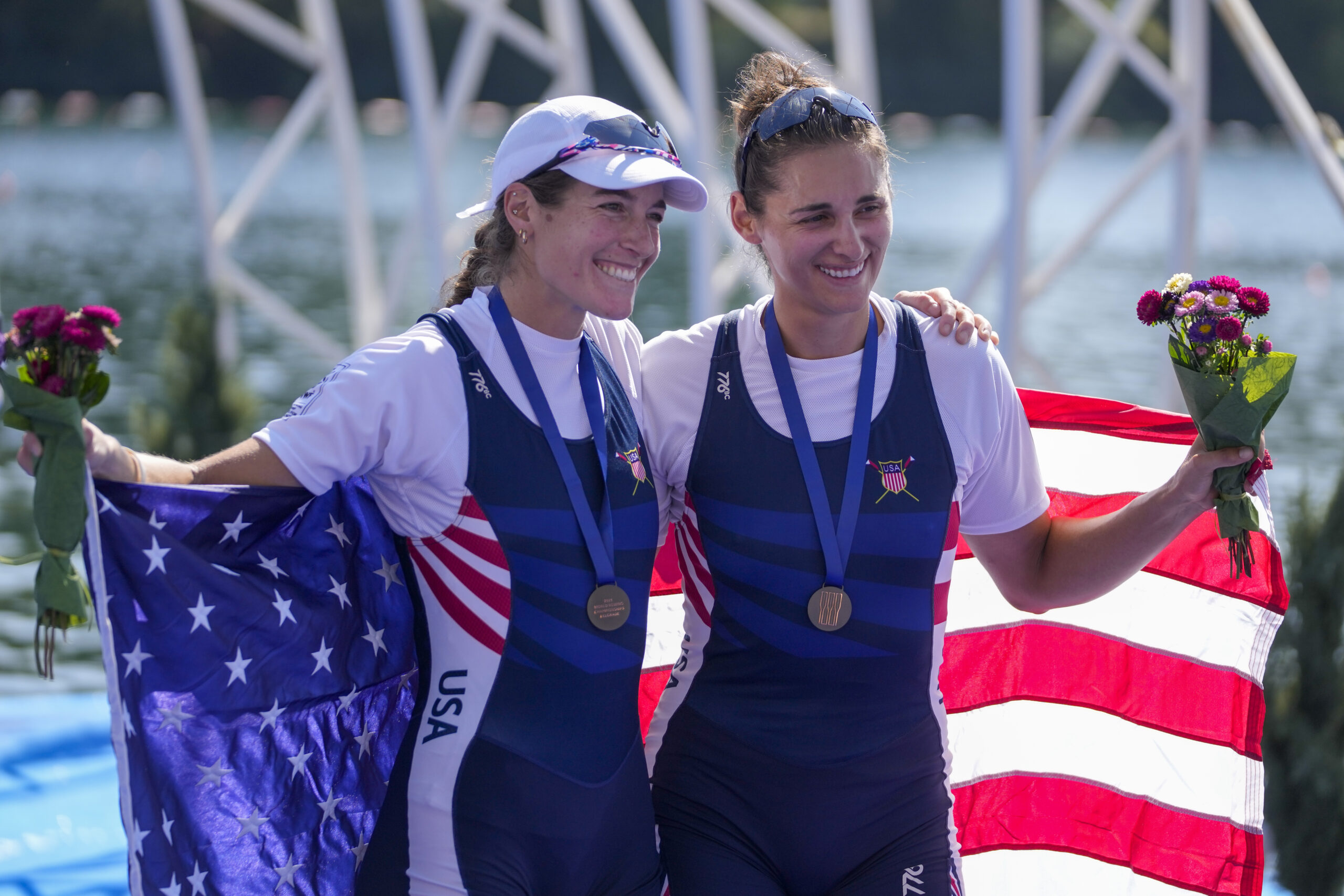
At the time, Olympic athletes were discouraged from working outside of rowing. Vitas had to survive on meager stipends from the U.S. Olympic and Paralympic Committee. Worse still, Vitas said her stipend was withheld more than once due to “underperforming at practices.”
“I came very close to quitting around 2018 because I simply couldn’t afford the lifestyle,” she said. “It was really difficult to come back and kind of resurge and use that as fuel.”
Her mother, Janet Wanamaker, said housing was particularly stressful for her daughter during the pandemic years, when host families were more reluctant to take someone into their homes.
The stipends are a little higher now, and Vitas said she also has a part-time fellowship with a venture capital firm in Houston. UW-Madison recently announced that Vitas will be a graduate assistant coach for rowing. She said it is important to be able to come out of an Olympic career with more on her resume.
“This is still very much an amateur sport in the U.S.,” Vitas said. “In other countries, that is all they do. They row, that’s their job. They get paid hundreds of thousands of dollars … If we had relied only on stipends and if we do not work part-time or full-time jobs, we are living below poverty.”
Vitas and O’Connor said they would like to see rowing figure out how to get more sponsorships or find ways to make races more fan-friendly to watch.
“You gotta pull out the binoculars or watch it on the TV,” Vitas said. “It is difficult to kind of grab and hold the attention of fans.”
No looking past Paris
Winning is the goal in Paris and most of Wisconsin’s rowers were circumspect about what might come next.
“Goal is a gold medal,” Wanamaker said.
“I think any Olympian would tell you that. But I think that if we can execute the crew and feel good about the race, have fun with my friends, and kind of live up to the potential that we have as a boat, it will be a successful Olympics,” she said. “And hopefully that will result in the gold medal.”
After years of seeing her daughter mostly on holidays, when Maddie would often take to the rowing machine in the basement while others were socializing, Janet Wanamaker is looking forward to life after the Olympics.
“They have their sights set on gold and it’s gonna be tough. It’s competitive,” she said. “But I think it’s just gonna be a really big relief when the pressure of that race is over and we hope to get to spend a little time with her in Paris and have some fun.”
WPR is talking with Wisconsin’s athletes competing in the 2024 Summer Olympic Games in Paris. Head to WPR’s special Olympic and Paralympic page to meet more of the competitors.
Wisconsin Public Radio, © Copyright 2025, Board of Regents of the University of Wisconsin System and Wisconsin Educational Communications Board.

